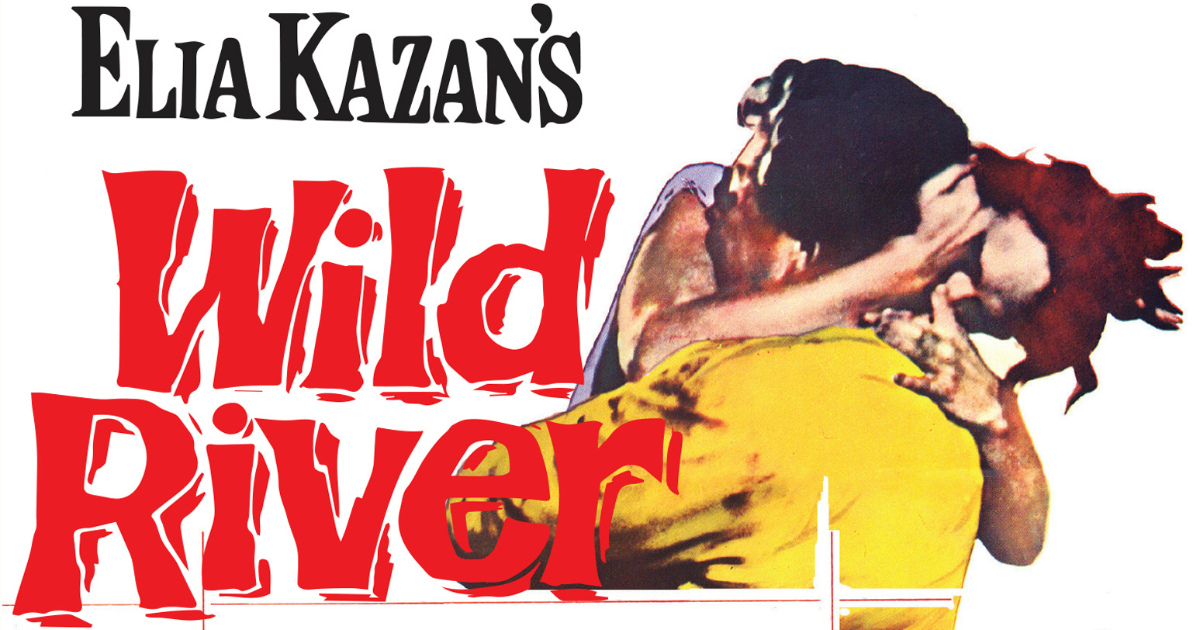
“You can’t get enough of me right now, can you?” Lee Remick breathlessly moans as Montgomery Clift kisses her neck, her sleeping children mere feet away. “Say it. Tell me you can’t get enough of me.” Clift obeys: “I can’t get enough of you.”
Nor I of this movie.
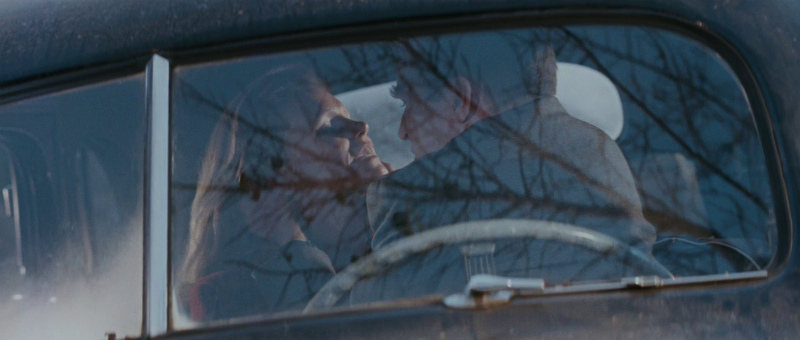
I hadn’t seen it at all before receiving Masters of Cinema’s new Blu-ray release. Now I’ve seen it twice in the past week. With a stack of dozens of discs to review, never mind hundreds of films I’ve never seen at my constant disposal thanks to the modern age, I had to see Elia Kazan’s 1960 masterpiece again. Right away. As soon as possible. And now that I have, I can’t wait to see it again.
Clift stars as Chuck Glover, newly-appointed head of the Tennessee Valley Authority’s land purchasing office in the mid-1930s, tasked specifically with convincing an eighty-year-old woman, Ella Garth (Jo Van Fleet) to sell her island farm, which will soon be covered by the river thanks to a newly-constructed dam. The dam will save countless lives in the long term, as the river has often demolished local communities, and bring electricity to the state in the meantime. But what’s good for The People isn’t always good for the individual.
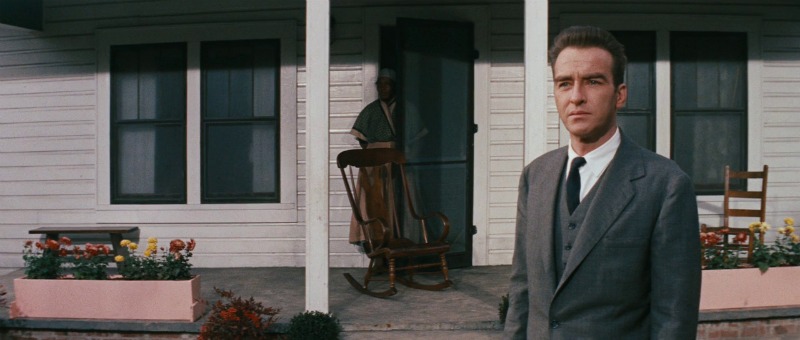
Right away, Roosevelt-era progress is linked to the river itself. Its destination is unavoidable, and you can either fight the current or become part of it. Chuck believes himself right in becoming a part of it. Arriving from Washington, D.C., and in constant contact with officials there, he has a pure vision in lockstep with the New Deal, and thinks only some simple reasoning will be enough to make his case. He has his speeches rehearsed, his suits tailored, and his face friendly. In a lesser performer’s hands, he would be a fearless crusader. Clift recognizes how far out of his element Chuck is. He knows what he needs to say, and knows what he needs to do, but isn’t always supremely comfortable when he does.
Ella Garth is comfortable. Who even knows when she last left her island. She controls the entire land, is immensely respected both in town and in her small community, and has probably never had this status challenged since she married the man who found the plot. She cannot cede to Chuck, or to anyone; the very thought is unimaginable.
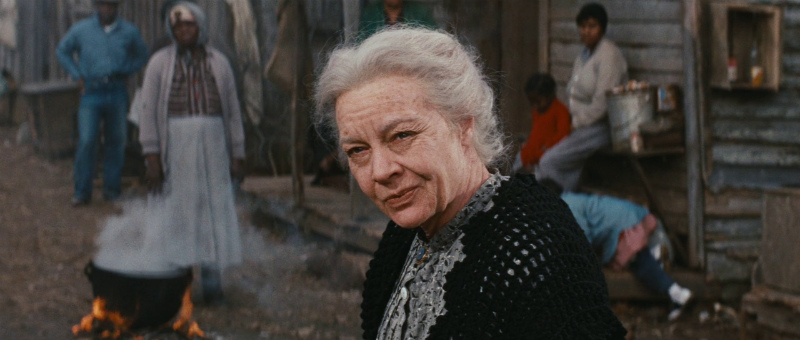
These are two fiercely competing ideologies America that continue to hold progress hostage today – the rights of the individual versus the responsibilities of the state. I’ll admit I tend towards the side of progress. But Ella Garth does make the alternative sound damned appealing. “I like things running wild,” she tells Chuck. “Like nature meant.” She’d rather be forced off by the current than by an institution; there’s a certain romance to that.
Kazan himself identified more with Chuck when he started developing the project, years before he was finally able to make it. In the ensuing years, he’d cooperated with the House Un-American Activities Committee, selling out eight former members of the Group Theatre and Communist Party. His testimony alienated him from many in left-wing Hollywood circles, and he, in turn, grew tired of what he saw as their tired mantras and insufficient slogans. He always knew what they were going to say. Chuck tends to speak in similar sorts of speeches towards the beginning of the picture – “That is the American way of life,” he tells a secretary upon arrival. “Rugged individualism is our heritage. 3000 people sell, and Ella Garth won’t sell. We applaud that spirit. We admire it, we believe in it, but we’ve got to get her the hell out of there.”
The intellectual tug-of-war in Wild River is a remarkably honest and fair one. There is no question that Ella Garth will eventually leave her land. The film asks us to consider, though, what is lost in so requiring it.
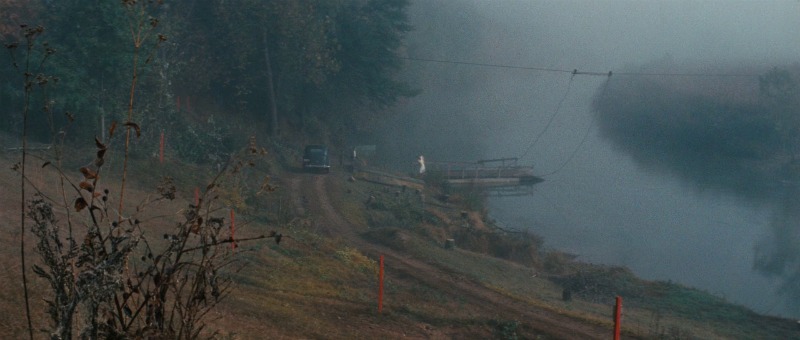
It’d all be pretty heady stuff if not for Carol (Remick). Ella’s granddaughter of unspecified parentage, Carol did what all good young women were meant to do at the time – she married young to a man she love, and bore two children. Her husband has been dead three years when we first meet her. She looks as though she hasn’t left Ella’s island in all that time, her eyes vacant and fearful upon Chuck’s arrival. A short talk with him sparks something within her, and the love story is off to the races.
She, in many ways, is the future of places like Tennessee, hoping to lift herself out of her circumstances while recognizing and honoring her past and heritage. But it’s not her symbolic importance that makes her so bewitching. This is a masterful performance, torn up in regret and lust for the man she now loves, unable to fully process the feelings he has awakened in her, some combination of seductress and explorer. Chuck has been all over the country, and reports to important people in Washington, D.C. What a big world his must be.
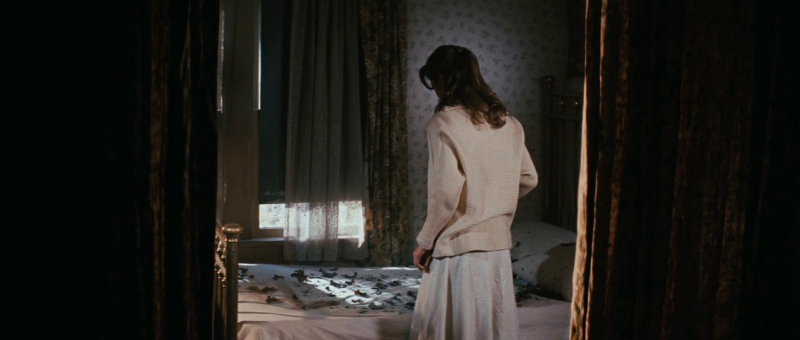
She, by contrast, hasn’t been anywhere, and Chuck’s hesitance in indulging in his feelings for her is reflective of his sudden uncertainty when he meets Ella. With Carol, here is a woman who is vivacious, strong, grown up in a way he isn’t quite (despite what seems to be a decent age advantage on his part), and with whom he is hopelessly, totally in love. He is the sort of man who has at least a five-year plan; someone like Carol isn’t a part of it in the least. But oh, the feeling of hearing those words I quoted at the top. The way she moves across the room, her hips so mesmerizing, he demands she stop. The way his eyes (Clift’s eyes say everything) shift to her when he’s trying to focus on something else. When she’s around Clift, Remick doesn’t stand or sit – she poses. Her natural posture accentuates her body erotically within her space. The fall breeze sweeps her hair, and the way she stands in that doorway could make any man abandon everything he’d ever known.
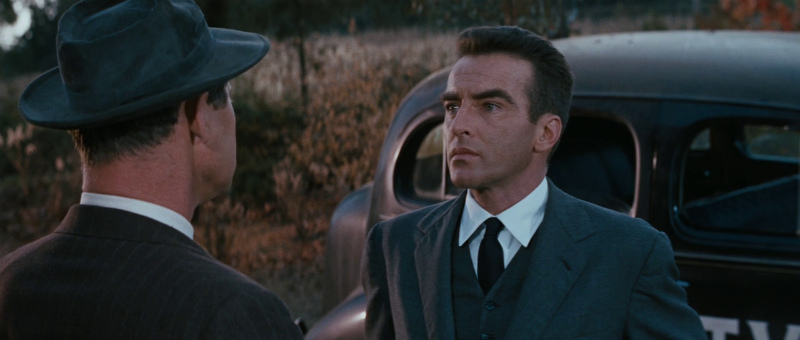
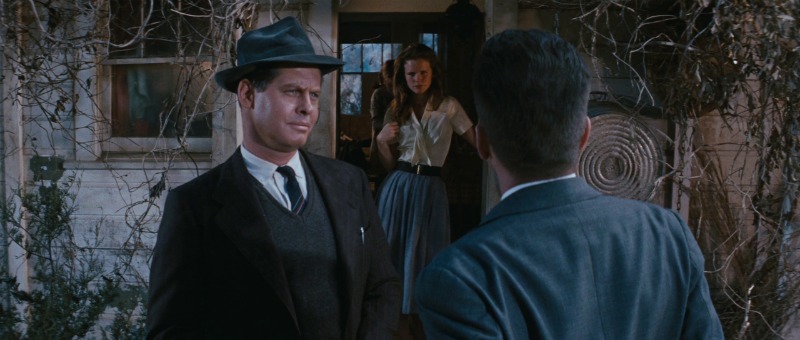
God, what a movie. What a movie filled with sadness and lust and the unease of accomplishment. The film’s final series of shots move from gazing mournfully at a tiny graveyard, the last island in a flooded valley, then excitedly at approaching the very dam that caused all this turmoil. Some form of progress is inevitable, flowing ever onward. For all I’ve said here, it’s only a fraction of the overwhelming depth within this film.
Masters of Cinema, porting over the same master Fox used for their own Blu-ray release, offer a bit of an upgrade on that earlier release with this new (Region B locked) edition. Judging by the screencaps at DVD Beaver, MoC seems to have brightened the image slightly and brought a bit more texture out in their encode. The results are often breathtaking – it’s a beautiful film to begin with – and in stills, you’d swear it’s among the best transfers of the year. I didn’t notice a bit of damage, the colors are vibrant and warm, and the image is crystal clear while still retaining a bit of grain. But there’s a bit of stiffness in the way it moves, a slightly unnatural, digital quality that feels to me as though the original master had been a bit overscrubbed. This is not a botched job by any measure; I’m sure most will be untroubled by this, and indeed, I was so swept up in the film on first viewing that it didn’t really register. But it is there. (The screencaps here have been heavily compressed, and do not necessarily reflect precisely the transfer; DVD Beaver’s screencaps, linked above, tell a much better story in that regard)
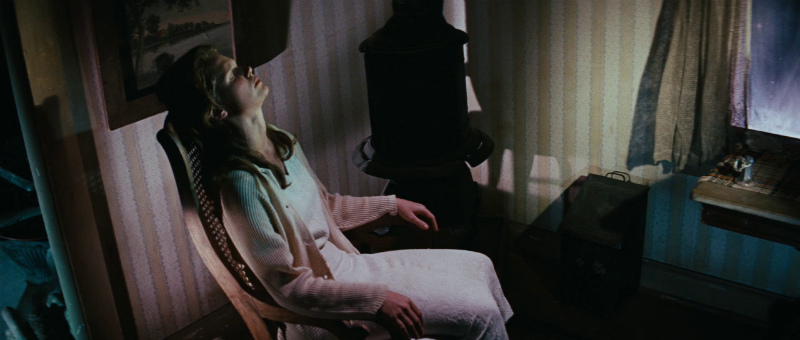
The disc comes with another excellent commentary track by film critics Glenn Kenny and Farran Smith Nehme, discussing the history of the film itself and its creative team, along with a good deal of thematic discussion. There’s a bit in the way of simply narrating the events onscreen, but it typically leads to contextualizing them within the film’s overall schematic or the lives of its players. In the accompanying booklet, Adrian Martin contributes a wonderful essay, and we get a short excerpt from an interview with Kazan in which he discusses the pain of producing a great feature for an uncaring studio.
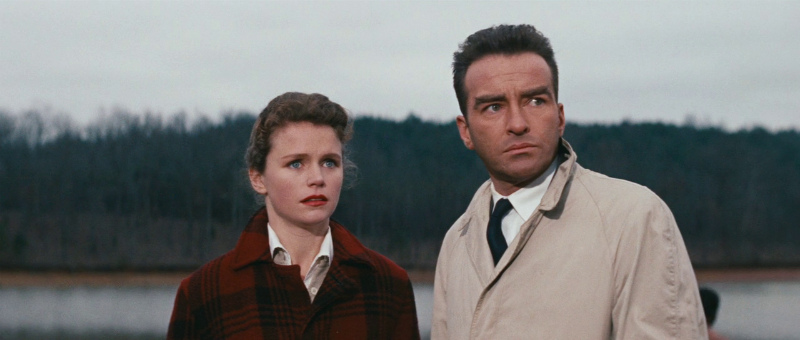
I honestly don’t know the last time I saw a film I loved as much as I love Wild River. It’s easily the best Kazan film I’ve seen, one of the best of an exemplary year in cinema (you could pit my top ten for that year against just about any), and just a gorgeous fusion of the intellect, the heart, the soul, and the body. I will watch this film every chance I get, and Masters of Cinema has provided a very fine avenue by which to do it.


